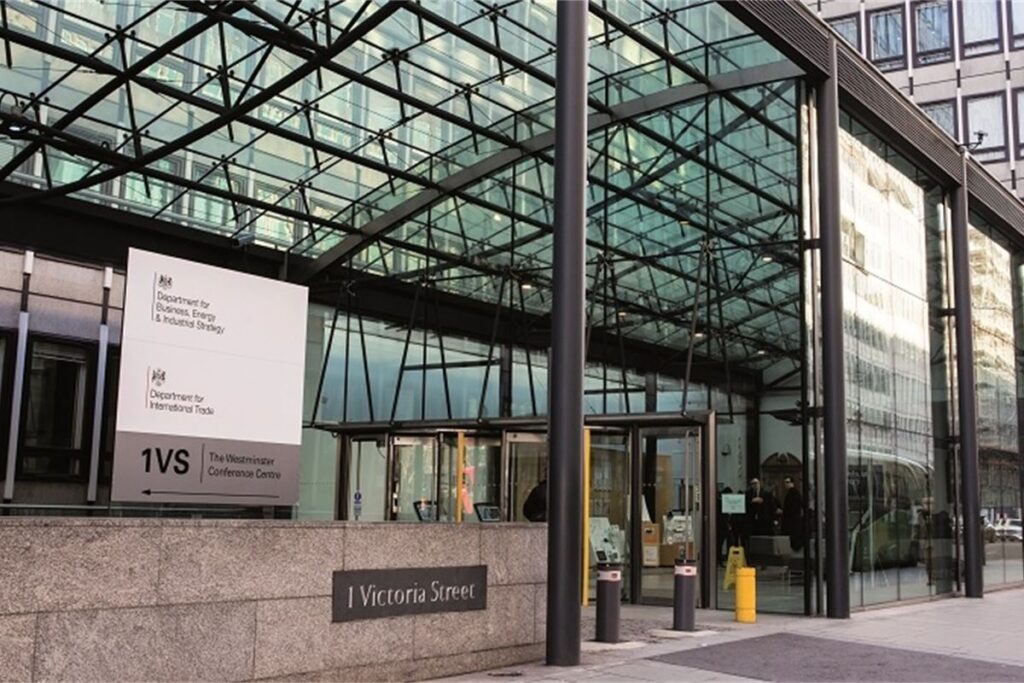
In the last few weeks, I’ve connected with a number of individuals interested in knowing more about what it’s like to leave the UK Civil Service. So I thought it might be an interesting chance to write about why I chose to leave, what opportunities lie elsewhere and some of the issues I have had to face in doing so.
I’m going to talk about my own experience particularly working as an official in the UK government. Nonetheless, many of the points here will likely be relevant to anyone who is currently finding themselves interested in their next move, particularly so if you are either feeling a little stuck or in need of a new challenge.
I joined the Department for Business, Energy and Industrial Strategy (BEIS) in 2017. Prior to that, I had shorter, placement and internship experiences in HM Treasury, the European Commission and the Foreign and Commonwealth Office. So in total I had spent around five years in the policy making space.
My time at BEIS was definitely a positive one, and I would certainly recommend spending time in the UK Civil Service for anyone who may be interested. I gained a wide range of policy-making skills, spanning several varied roles and I took advantage of learning opportunities by building my own personal qualifications. In my four years there, I gained a Level 6 Diploma in Leadership and Management and became a certified practitioner Agile Project Manager. I also went on a number of training courses including a development programme over the course of the year. BEIS in all was a great opportunity for me to learn.
Like any employer, it was not all sunshine and rainbows. Working on Brexit for a number of years took its toll, and whilst the developments meant more job opportunities internally (which meant I was able to get promoted faster than usual), it also led to me at times working in poorly structured teams, sometimes with unsupportive and underskilled managers who had been promoted quickly without a whole lot of management experience.
I also became exhausted with the change, I had numerous director changes, Group name changes, policy shifts, ministerial changes and a few elections in my time. Brexit felt like a never-ending treadmill of new deadlines and changing goalposts, with pretty unrealistic expectations of what civil servants were meant to achieve.
In the last year or so, I found it particularly destabilising working under the most recent government. Namely in its public attacks on Civil Servants, who were often blamed for many issues publicly by Ministers, as well as being used as economic tools by being ordered during COVID to get back into our London offices to buy sandwiches and restart the economy.
I worked on Diversity and Inclusion issues throughout my time in government, and it became increasingly difficult under a Government who railed against a ‘woke agenda’, including within Government. This meant suddenly activities being arm-twisted away from ‘above’, including a lot of progress being halted due to some Special Adviser somewhere not liking what we did. It’s no wonder that a lot of BAME colleagues I know have recently left, many of which who were pioneers in advancing race and wider diversity issues.
On top of this all, I realised that the chances of me progressing further was pretty slim. Due to the way the Civil Service is structured, there are few opportunities for progression after a certain point of seniority. I also became growingly disillusioned at how I saw my white colleagues get promoted past me, often to find them having mediocre management skills which would often make my life a nightmare for the first 6-12 months as they actually learnt how to do their role. This happened to me several times.
I also realised my value and additional qualifications I had gained were not really valued – instances included senior officials ignoring advice around project management (despite sending me on a project management course!), and all my efforts around diversity and inclusion being boiled down to a £500 voucher, and when I would use these examples in job applications internally I was often sifted out as these seemingly not ‘the right types of examples’.
So with a mixture of disillusionment within Government and an impending deadline of Brexit, I decided I wanted to move to the Continent to build my career in the EU policy-making space. For me this was a culmination of decisions based around my personal-life (where do I want to live?) and wanting to try something outside of government with a different set of experience and more space for creativity.
It is quite scary moving out to the big wide world outside government. The system encourages people to stay within, to the point where people move around constantly whenever they get tired with their roles. It can be pretty easy to lose touch with how employers work outside of government, and how the application process can greatly differ externally.
The unfortunate reality is that job hunting is a lot of work, and it took me many months of re-learning the rules of the game and building a better understanding of what I really wanted to do before I ultimately left. This often leads to people sometimes feeling they get a little stuck within their roles, often finding themselves in a spiral of being unsatisfied in a role because of the pressure and expectations, meaning they do not have time to genuinely search for a new role. I certainly empathise with this situation, though unfortunately it is something you may have to grind out.
Now being on the other side of it, I would certainly recommend leaving, if not to only have it as an option. There are often far more interesting roles than we might realise outside of government, with a growing level of flexibility and opportunities that would suit your particular needs, often that government might not be able to (like in my example when it came to physical location). On top of that, returning to Government is actually far easier than previously, meaning you can leave and join again. Ironically for me, by leaving I’ve given myself a better space to progress and return at a higher level than I would have by staying.
The pain points will often be a mixture of overwhelm at what is out there, as well as uncertainty around how to translate government experience into what recruiters are asking for. This will take time and commitment, so if you are considering leaving I would highlight how much time and effort it takes. But being on the other side of the process, I would certainly recommend it.
I hope this article is helpful in talking through some of the things you might find yourself going through, or simply to understand more about why people leave organisations. I’d love to hear from you if you found this helpful!








